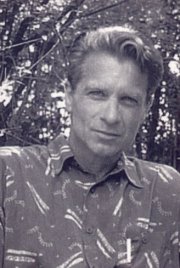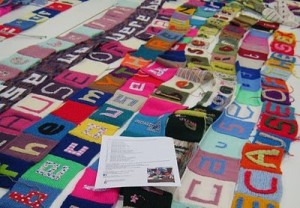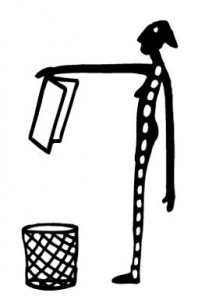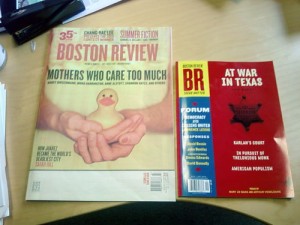 Author Michael Gizzi (1949 – 2010)
Author Michael Gizzi (1949 – 2010)
Hard Press Editions Bio
Penn Sound
The Poetry Foundation
NewPages Blog
At the NewPages Blog readers and writers can catch up with their favorite literary and alternative magazines, independent and university presses, creative writing programs, and writing and literary events. Find new books, new issue announcements, contest winners, and so much more!
Job :: Professor/Editor of Prairie Schooner
The Department of English at the University of Nebraska Lincoln seeks applications and nominations for an advanced associate professor or a full professor to serve as the Glenna Luschei Professor and Editor of Prairie Schooner. Candidates must have a distinguished publication record as a poet, significant experience as an editor of creative works, a record of excellent teaching, and an active creative/research program. The Editor of Prairie Schooner is a tenured member of the English Department faculty with a one-one assignment teaching both undergraduate and graduate classes and is also expected to assume normal service responsibilities. As Editor of Prairie Schooner, the faculty member supervises all aspects of the journal and the Book Prize Series, makes all final production and editorial decisions, monitors budgets, and supervises the managing editor, graduate assistants, and interns.
Qualifications: Candidates must have a PhD or MFA in English or closely related field, a significant nationally recognized record of publication in poetry, substantial editorial experience, and evidence of excellence in teaching.
Applicants must complete the Faculty/Academic Administrative Information form, requisition #100576 and attach required documents.
For information about the application process, contact:
Professor Marco Abel, Recruitment Chair
402-472-1850
mabel2[at]unl[ot]edu
For information about the position, contact
Professor Susan Belasco, Department Chair
402-472-1857
Review of applications will begin October 25, 2010 and continue until a suitable candidate is found.
The University of Nebraska has an active National Science Foundation ADVANCE gender equity program, and is committed to a pluralistic campus community through affirmative action, equal opportunity, work-life balance, and dual careers.
Application Information
Contact:
University of Nebraska-Lincoln
Online App. Form:
http://employment.unl.edu
Spread the word!
PostSecret
 PostSecret is an ongoing community art project where people mail in their secrets anonymously on one side of a postcard. There is also a series of PostSecret books published by Harper Collins, and “PostSecret Live” – a multi-media presentation by Frank Warren, founder of PostSecret. Audience members can see postcards that were banned from the books, hear the inspiring and funny stories behind the secrets, and share their secrets at the microphone. The schedule for upcoming performances (many sold out) in on the site.
PostSecret is an ongoing community art project where people mail in their secrets anonymously on one side of a postcard. There is also a series of PostSecret books published by Harper Collins, and “PostSecret Live” – a multi-media presentation by Frank Warren, founder of PostSecret. Audience members can see postcards that were banned from the books, hear the inspiring and funny stories behind the secrets, and share their secrets at the microphone. The schedule for upcoming performances (many sold out) in on the site.
Spread the word!
Lupus Alliance of America Fundraiser: Clash of the Geeks
Wil Wheaton, John Scalzi and Subterranean Press are proud to announce the publication of Clash of the Geeks, a special and fantastical electronic chapbook featuring stories by Wheaton, Scalzi, New York Times bestseller Patrick Rothfuss, Norton Award winner and Hugo Best Novel nominee Catherynne M. Valente, Hugo and Nebula Award nominee Rachel Swirsky and others, for the benefit of the Michigan/Indiana affiliate of the Lupus Alliance of America. The chapbook is free to download, but voluntary payment is strongly encouraged, via Paypal or by tax-deductible donation forms. All proceeds go to the Michigan/Indiana affiliate of the Lupus Alliance of America.
Spread the word!
The Sexual Life of an Islamist in Paris
Brace yourself for The Sexual Life of an Islamist in Paris by Leila Marouane. Not only is it hilarious and disturbing, it is also disorienting, cunning, and bizarre. Continue reading “The Sexual Life of an Islamist in Paris”
Spread the word!
Richard Yates
With his first novel Eeeee Eee Eeee, I encountered the spine-tingling creature known as the “contemporary writer” – contemporary in both the sense of writing now and writing at an age close to my own. After coming to terms with Lin’s persona (an unfortunate combination of reading the back cover of books and the Internet), fiction diverged from my ideas of authorship and the dead white guys who’ve historically run the show. Continue reading “Richard Yates”
Spread the word!
Clockfire
In his “36 Assumptions About Playwriting,” José Rivera instructs, “In all your plays be sure to write at least one impossible thing. And don't let your director talk you out of it.” Jonathan Ball takes this idea to a new level in his collection, Clockfire. Billed as poetry on its press release, this genre-defying collection consists of “blueprints for imaginary plays that would be impossible to produce.” Continue reading “Clockfire”
Spread the word!
The Inquisition Yours
In this, her third book of poems, Jen Currin is at her most elliptical. Yes, it’s a somewhat useless term, one replaced by something even more vague by the critic who coined it, but it is a term which has come to indicate a certain sort of poem to me, which Jen Currin’s poems are: not really fairy or folk-tale-like, but having commonalities with fantastic narratives with an object lesson; not really domestic surrealism, but certainly in love with the idea of slippage, the morphology of phrases when juxtaposed, etc.; not really symbolism in a heavy handed way, but light, contemporaneous, elliptical indications of meanings just beyond the text. Continue reading “The Inquisition Yours”
Spread the word!
Phantom Noise
My grandfather used to tell me and my siblings stories about World War II all the time. But he never talked about Alsace-Lorraine. He never talked about whether he heard the potato masher that filled him with shrapnel. He never talked about if he saw from where the bullet came that shredded the nerves in his right arm. He never talked about how he was presumed dead, like everyone else in his unit by the German army that day. He never talked about crawling through the woods while trying to keep his consciousness. He never talked about the year in a British hospital. He never talked about why he hated fireworks, or backfiring cars or popping birthday balloons. He never talked about why he woke up every night of his life in a sweat until he was 75. He never talked about the small pieces of metal that would work their way out of his skin and end up next to him in bed some mornings. He never talked about a lot, but he wrote a lot of it down, in the margins of his bankbook, in a photo album, scratched onto the back of his Purple Heart. Continue reading “Phantom Noise”
Spread the word!
Yankee Invasion
For those readers drawn to history and psychology, Solares’s Yankee Invasion is a novel certain to intrigue. Set in the aftermath of the Mexican-American war of 1846-48, the novel is narrated by Abelardo, who struggles to write an account of the recent war even while he is still dominated by the mental trauma of the conflict. Continue reading “Yankee Invasion”
Spread the word!
I Just Lately Started Buying Wings
“Perhaps it’s the more subtle experience of relief as a kind of lifting up that most interests me,” says Kim Dana Kupperman in her collection’s opening essay, “Relief.” But what makes the compilation of linked essays interesting to readers? Through deftly untwining stories from her life, she manages to lift us up even as her topics are decidedly downers. Continue reading “I Just Lately Started Buying Wings”
Spread the word!
The Art of Description
Celebrated poet Mark Doty's how-to guide of writing poetry, The Art of Description: World into Word, is a book on writing that stands out among many of its kind. From the very beginning we see a passion for the language and a romanticism in it, making the word-loving reminisce and the non-word-loving fall in love. The book serves as a microscopic view of poetry, detailed and scientific. Doty skillfully picks apart the language into its most simple and primal qualities and shows the reader how to utilize them. In sections, he uses established poems and poets to function as a sort of body for dissection and observation. For one in particular, Elizabeth Bishop's “The Fish,” Doty devotes an entire chapter in which he breaks down the poem piece by piece and describes to the reader why the poem works so well. This happens a few more times in the book, as well, and they all benefit the reader greatly. Continue reading “The Art of Description”
Spread the word!
Monkey Bars
I read Monkey Bars initially while on vacation with my family. It was a warm, pine-and-campfire-scented weekend, full of moments like the one described in Matthew Lippman’s title poem, “dying from laughter, / the joke funny / the bust-the-gut hysteria, hysterical.” I read the poetry as such, too; when I reached the author’s biography – “He teaches English and Creative Writing to high school students” – I even thought to myself, holy cow his students must have a blast! Continue reading “Monkey Bars”
Spread the word!
Free Public Domain Digital Comic Museum
 The Digital Comic Museum is “the #1 site for downloading FREE public domain Golden Age Comics. All files here have been researched by our staff and users to make sure they are copyright free and in the public domain. To start downloading just register an account and enjoy these great comic books. We do not charge per download and the goal of project is to archive these comic books online and make them widely available.” [via Gerry Canavan]
The Digital Comic Museum is “the #1 site for downloading FREE public domain Golden Age Comics. All files here have been researched by our staff and users to make sure they are copyright free and in the public domain. To start downloading just register an account and enjoy these great comic books. We do not charge per download and the goal of project is to archive these comic books online and make them widely available.” [via Gerry Canavan]
Spread the word!
Millay Colony for the Arts 2011 Residencies
The Millay Colony for the Arts offers one-month residencies to six visual artists, writers and composers each month between April and November. Nurturing the work of artists of all ages, from a range of cultures and communities, and in all stages of their artistic career, the Colony offers comfortable private rooms, private studio spaces, and ample time to work in a quiet, pastoral atmosphere.
To Apply:
NEW: Online application submission for 2011 Residency Program.
Application submissions via mail also available for 2011 season.
Applicants must submit a Millay Colony for the Arts application in addition to an artistic statement and work samples.
Details and form are available on our website. Applications must be postmarked or posted by October 1, 2010 for a month-long residency in 2011. Acceptance letters go out in February.
For more information, please call Residency Director Calliope Nicholas at 518-392-3103 or email at residency[at]millaycolony[dot]org.
Spread the word!
To Light Out
So it goes, and a mollusk can not draw
the machine as we can not draw the heart Continue reading “To Light Out”
Spread the word!
The Mothering Coven
Robert Coover is one of my favorite writers. With quirky, mythical tales of magic realism, it’s no wonder he endorsed The Mothering Coven, the fabulist debut novel by Joanna Ruocco. Throughout this slight, but fertile novel, Ruocco plays with language and creates an inventive world filled with richly crafted characters. Continue reading “The Mothering Coven”
Spread the word!
The Art of Recklessness
“My argument is abandon and tells me to abandon every argument.” Continue reading “The Art of Recklessness”
Spread the word!
Our Jewish Robot Future
Margarita and Alex Haralson are just average Jewish parents. Sixty-somethings, recently retired, they want nothing more than to get some grandchildren, and quick. But their two grown children refuse to cooperate (marijuana usage, potential lesbianism, and other obstacles get in the way of progeny production). So, Margarita and Alex do what, perhaps, any folks would do: they turn to robots. Or, to be more precise, the robots turn to them. Hey, whatever it takes to get some grandchildren! Continue reading “Our Jewish Robot Future”
Spread the word!
The Plumbers Apprentice
Here is a collection of poems for hard times. The first section, “There Goes the Neighborhood,” re-examines life’s past warts and pimples. Weil’s poem, “In My Neighborhood, Everyone Almost Wins the Lottery” looks at where he grew up and says, Continue reading “The Plumbers Apprentice”
Spread the word!
The Hotel Under the Sand
The Hotel Under the Sand is a sweet, touching and funny story aimed at children from about 8-12 years old. Fans of Eva Ibbotson will love the friendly ghosts, gentle tone and quirky characters. It has a charming old-fashioned feel. Children books nowadays tend to be hectically paced adventures defeating terrifying villains. This quieter, sweeter yet witty book makes a nice change. Continue reading “The Hotel Under the Sand”
Spread the word!
Maxine Kumin Interview
Lee Rossi interview with Maxine Kumin on The Pedestal.
Spread the word!
John Siddique’s Poem in Knit
 John Siddique: “You know you’ve made it when one of your poems is immortalised in wool.”
John Siddique: “You know you’ve made it when one of your poems is immortalised in wool.”
Spread the word!
Gilrs Explode by Lauren Zuniga
Spread the word!
Internet Curiosity :: List Magazine
List Magazine does just what it says – publishes lists. Twice a month, nonfiction lists submitted by “guest experts in science, art, and public spectacle, and other serious persons will be posted.” Currently, the first list, from the editor’s desk, is “How to Say a Few Words in 10 Languages That Will Soon Be Extinct.” A footnote reference states: “The Unesco Interactive Atlas of the World’s Languages in Danger maps 232 extinct and 2,465 endangered languages. Half of the world’s 6500 to 7000 languages are expected to disappear this century.”
This is not silly or superflorus listmaking, but thoughtful and thought provoking, such as the one word entry that will be going up on my office door, “taturaaiiwaatista: ‘I am going to tell a story.’ Pawnee, a Caddoan language spoken by fewer than ten people in Pawnee County, Oklahoma.” And another, “nee’ééstoonéhk bíi3néhk noh héétniini núhu’ hee3éihi’ ee3eihi’: ‘If you do that, if you eat it, then you will be the way we are.’ Arapaho, a Plains Algonquian language spoken by 200 fluent elders on the Wind River Reservation in Wyoming, and by students of the language immersion school they founded in 2008,” which incites the reader to suddenly make connections with much deeper roots and greater meaning to the contemporary saying – ‘You are what you eat.’
List Magazine is edited by Josh Wallaert, poet, fiction writer, and documentary filmmaker, who invites submissions with this limitation: “If you are a non-serious person who trades in fictional lists, such as Rap Lyrics of the 17(90)’s or Heavy Metal Board Games, you may want to send your wares to Mr. Timothy McSweeney’s Internet Tendency. Timothy keeps a fine collection of that sort.”
Otherwise, List Magazine invites submissions of “lists, queries, and other species of correspondence. Lists can be funny, sad, curious, personal historical, whatever you like, but they must be true, and they must be your original work. List Magazine particularly enjoys lists that demonstrate significant research. (Footnotes and links are appropriate.)”
Additionally, contributors agree to publish their lists under the magazine’s creative commons license. Nice to see that in use – thanks Josh!
Spread the word!
John Morse Roadside Haiku
 Roadside Haiku: Using the brief format of traditional haiku—three lines of five/seven/five syllables—John Morse transforms the familiar bandit sign into a delivery device for poetic snapshots of the urban condition presented and consumed within the brief seconds of stop and go traffic.
Roadside Haiku: Using the brief format of traditional haiku—three lines of five/seven/five syllables—John Morse transforms the familiar bandit sign into a delivery device for poetic snapshots of the urban condition presented and consumed within the brief seconds of stop and go traffic.
Spread the word!
CFS :: Journal of Electronic Publishing – Digital Poetry
Long-time editor, Judith Axel Turner, is retiring from The Journal of Electronic Publishing (JEP), and Aaron McCollough has been asked to curate one of several issues to be published in the interim before a new editor-in-chief is appointed.
McCollough has chosen to put together an issue broadly dedicated to digital poetry publishing and is seeking articles. He hopes this issue will “bring together many distinct but related conversations concerning relationships between poetry and the wide array of digital prostheses that are shaping and have shaped 21st Century poetics,” as well as “bring the pertinent conversations to the attention of new audiences.” Submission deadline is April 15, 2011.
The Journal of Electronic Publishing (JEP) is a forum for research and discussion about contemporary publishing practices, and the impact of those practices upon users. Contributors and readers are publishers, scholars, librarians, journalists, students, technologists, attorneys, retailers, and others with an interest in the methods and means of contemporary publishing. At its inception in January 1995, JEP carved out an important niche by recognizing that print communication was in the throes of significant change, and that digital communication would become an important – and in some cases predominant – means for transmitting published information.
JEP is published by the Scholarly Publishing Office (SPO), a unit of the University of Michigan Library, which is committed to designing affordable and sustainable publishing solutions in the network era (with a serious commitment to open-access publishing).
Spread the word!
Ka Mate Ka Ora & The North Down South

Published by the New Zealand Electronic Poetry Centre (*nzepc*), the ninth issue of Ka Mate Ka Ora: A New Zealand Journal of Poetry and Poetics offers a special focus on North American legacies in the southern hemisphere:
Murray Edmond, Trade and True: Anthologies Fifty Years After Donald Allen’s The New American Poetry
Virginia Gow, The Activity of Evidence: Robert Creeley’s New Zealand
Jeffrey Paparoa Holman, Hello, America: Christchurch’s 1970s Pacific Moment
Scott Hamilton, Before Erebus: Five Footnotes to Kendrick Smithyman’s ‘Aircrash in Antarctica’
Ian Wedde, Does Poetry Matter?
Roger Horrocks, Leigh Davis (1955-2009)
Paul Millar, Jacquie Baxter / JC Sturm (1927-2009)
Murray Edmond, ‘Landed Poem Upwards’: Martyn Sanderson (1938-2009)
Robert Sullivan, Cape Return: for Alistair Te Ariki Campbell (1925-2009)
* *
*kmko* is edited by Murray Edmond with assistance from Hilary Chung, Michele Leggott, and Lisa Samuels at the University of Auckland, and with the support of a team of consulting and contributing editors. It publishes research essays and readings of New Zealand-related material and welcomes contributions from poets, academics, essayists, teachers and students from within New Zealand and overseas. Submission guidelines and further information at www.nzepc.auckland.ac.nz/kmko/about.asp
Spread the word!
New at Redivider
 Emerson College’s Redivider Magazine welcomes Amber Lee as Editor-in-Chief for 2010-2011. Amber will be joined by Managing Editor Nick Sansone, Production Editor Rebecca Demarest, Fiction Editor Brooks Sterritt, Poetry Editor Emily Thomas, Nonfiction Editor Lindsay Milgroom, Web Editor Anna Pollock-Nelson and Art Editor Merry Stuber.
Emerson College’s Redivider Magazine welcomes Amber Lee as Editor-in-Chief for 2010-2011. Amber will be joined by Managing Editor Nick Sansone, Production Editor Rebecca Demarest, Fiction Editor Brooks Sterritt, Poetry Editor Emily Thomas, Nonfiction Editor Lindsay Milgroom, Web Editor Anna Pollock-Nelson and Art Editor Merry Stuber.
Also new at Redivider is their Fiction Contest with cash prizes and publication – open for submissions until March 1, 2011.
Spread the word!
Emerson Society Awards 2011
The Ralph Waldo Emerson Society announces three awards for projects that foster appreciation for Emerson.
Research Grant
Provides up to $500 to support scholarly work on Emerson. Preference given to junior scholars and graduate students. Submit a 1-2-page project proposal, including a description of expenses, by March 1, 2011.
Pedagogy or Community Project Award
Provides up to $500 to support projects designed to bring Emerson to a non-academic audience. Submit a 1-2-page project proposal, including a description of expenses, by March 1, 2011.
Subvention Award
Provides up to $500 to support costs attending the publication of a scholarly book or article on Emerson and his circle. Submit a 1-2-page proposal, including an abstract of the forthcoming work and a description of publication expenses, by March 1, 2011.
Send Research, Pedagogy/Community, and Subvention proposals to:
Jessie Bray
brayjn[at]etsu[dot]edu
and
Daniel Malachuk
ds-malachuk[at]wiu[dot]edu
Award recipients must become members of the Society
Spread the word!
New Lit on the Block :: The Common
 Editor Jennifer Acker and Poetry Editor John Hennessy head The Common, a biannual print publication from Amherst College in Amherst, Massachusetts. Inspired by this mission and the role of the town common, a public gathering place for the display and exchange of ideas, The Common seeks to recapture an old idea. The Common publishes “fiction, essays, poetry, documentary vignettes, and images that embody particular times and places both real and imagined.”
Editor Jennifer Acker and Poetry Editor John Hennessy head The Common, a biannual print publication from Amherst College in Amherst, Massachusetts. Inspired by this mission and the role of the town common, a public gathering place for the display and exchange of ideas, The Common seeks to recapture an old idea. The Common publishes “fiction, essays, poetry, documentary vignettes, and images that embody particular times and places both real and imagined.”
The first issue (00), much of which is available online via PDF, features works by Ted Conover, Yehudit Ben-Zvi Heller, Michael Kelly, Honor Moore, Sabina Murray, Mary Jo Salter, Don Share, Jim Shepard, and Marina Tsvetaeva.
The Common is currently accepting submissions for Issue 01. The submission period is September 15-December 1.
Spread the word!
Glimmer Train Very Short Fiction Winners :: September 2010
Glimmer Train has just chosen the winning stories for their July Very Short Fiction competition. This competition is held twice a year and is open to all writers for stories with a word count not exceeding 3000. No theme restrictions. The next Very Short Fiction competition will take place in January. Glimmer Train’s monthly submission calendar may be viewed here.
First place: J. K evin Shushtari, of Farmington, CT, wins $1200 for “The Vast Garden of Strangers.” His story will be published in the Winter 2012 issue of Glimmer Train Stories, published in November 2011.
evin Shushtari, of Farmington, CT, wins $1200 for “The Vast Garden of Strangers.” His story will be published in the Winter 2012 issue of Glimmer Train Stories, published in November 2011.
Second place: Graham Arnold, of Downers Grove, IL, wins $500 for “The Story Is in the Reflection.”
Third place: Nahal Suzanne Jamir, of Tallahassee, FL, wins $300 for “In Perfect English.”
A PDF of the Top 25 winners can be found here.
Deadline soon approaching for the September Fiction Open: September 30
This competition is held quarterly and is open to all writers. Word count range: 2000-20,000. No theme restrictions. Click here for complete guidelines.
Spread the word!
Video Web Series of Touring Poets in New York
Monday, September 27, Coldfront Magazine debuts a new feature: TOURIST TRAP, NYC – a video web series that follows touring poets to some of New York’s top tourist destinations, as well as lesser known bars, reading venues and unheralded back streets. Each episode will feature one or two poets as they explore the city, discuss their work, how urban landscapes influence their writing, the history or importance of landmark they’ve chosen to visit, as well as any art/literature related conversations they might deem relevant along the way. Each episode will culminate with a short, 1-2 poem reading at their destination of choice. Episode 1 features the poet Julie Doxsee.
Spread the word!
Banned Books Week Sept 25 – Oct 2
Visit Banned Books Week online for information about book challenges, events, and a Google map marking locations where books were challenged 2007-2009 – see how your state ranks.
The 10 most challenged titles for 2009:
ttyl; ttfn; l8r, g8r (series), by Lauren Myracle
Reasons: nudity, sexually explicit, offensive language, drugs, and unsuited to age group
And Tango Makes Three, by Peter Parnell and Justin Richardson
Reasons: homosexuality
The Perks of Being a Wallflower, by Stephen Chbosky
Reasons: drugs, homosexuality, nudity, offensive language, sexually explicit, suicide, and unsuited to age group
To Kill a Mockingbird, by Harper Lee
Reasons: racism, offensive language, unsuited to age group
Twilight (series), by Stephanie Meyer
Reasons: sexually explicit, religious viewpoint, unsuited to age group
Catcher in the Rye, by J.D. Salinger
Reasons: sexually explicit, religious viewpoint, unsuited to age group
My Sister’s Keeper, by Jodi Picoult
Reasons: sexism, homosexuality, sexually explicit, offensive language, unsuited to age group, drugs, suicide, violence
The Earth, My Butt, and Other Big, Round Things, by Carolyn Mackler
Reasons: sexually explicit, offensive language, unsuited to age group
The Color Purple, by Alice Walker
Reasons: sexually explicit, offensive language, unsuited to age group
The Chocolate War, by Robert Cormier
Reasons: nudity, sexually explicit, offensive language, unsuited to age group
Spread the word!
CNF Wants Narrative Blog Posts to Reprint
From Stephen Knezovich, Associate Editor / Mentoring Director, Creative Nonfiction:
Creative Nonfiction is seeking narrative blog posts to reprint in an upcoming issue. We’re looking to get input from folks, like yourself, who are plugged into the online literary community, and we hope you’ll send us your suggestions (or, you know, if you wanted to post this call on your Twitter/Blog/Facebook pages, we’d like that a whole lot, too).
We’re looking for: Vibrant new voices with interesting, true stories to tell. Narrative, narrative, narrative. Posts that can stand alone, 2000 words max, from 2010. Something from your own blog, from a friend’s blog, from a stranger’s blog.
Deadline for nominations: Monday, September 27, 11:59 PM EST.
For more details and to nominate a blog post go here.
Spread the word!
2011 Baltic Writers Residency
Applications are open for the 2011 Baltic Writers Residency, a funded month-long annual summer residency in Riga, Latvia for poets, playwrights, and writers of fiction working in English. December 15 deadline.
Spread the word!
Rio Grande Review Editor Needs a Name
Spread the word!
Free Spirit Publishing Seeks Teen Advisors
Free Spirit Publishing, the leading publisher of books that support young people’s social and emotional health, seeks young people, grades 6 and up, to join its teen advisory council. In order to keep the publisher’s books and other products current and relevant, the advisory council provides valuable feedback on things like design, art, and content. More information and applications are available on this flyer: Free Spirit Publishing. Application review is ongoing.
Spread the word!
Guernica Commons
Guernica Magazine of Arts and Politics has begun a new membership program – Guernica Commons for readers who want to support the online publication.
Spread the word!
Franz Wright and Eugene O’Neill on Drunken Boat
 In addition to its regular offering of poetry, fiction, non-fiction, photo essays, and readings, Drunken Boat #12 online has new and unpublished poems, prose, and 14 images of hand-written drafts by Pulitzer Prize winning poet Franz Wright as well as a tribute to 20th century dramatist Eugene O’Neill entitled Celtic Twilight, with essays by over two dozen Irish-American authors and artists.
In addition to its regular offering of poetry, fiction, non-fiction, photo essays, and readings, Drunken Boat #12 online has new and unpublished poems, prose, and 14 images of hand-written drafts by Pulitzer Prize winning poet Franz Wright as well as a tribute to 20th century dramatist Eugene O’Neill entitled Celtic Twilight, with essays by over two dozen Irish-American authors and artists.
Spread the word!
Brevity Essays on Craft
Check out these craft essays in the September issue of Brevity – online:
Exploring Intersections: An Exercise in Dismembering and Remembering Selves by Lockie Hunter
A writing exercise that has generated a great deal of excitement in my nonfiction classes is one I call the “self-adjectives” exercise. Its intent – to locate your interests and passions by listing self-descriptors – is similar to Sherry Simpson’s “tiny masters” exercise (Brevity craft essay, Issue 28) and rarely failed to spawn enthusiastic responses…until I began teaching at Warren Wilson College.
The Wonder of Geese by Bryan Furuness
One of the worst teachers I ever had was a man named Sam, who led my first writing workshop in graduate school. He used to stop class whenever geese flew past the window. “Geese!” he’d say, interrupting whoever was speaking, even if it was himself. The class would look dutifully at the geese, and some ass-kisser would say, “Wow,” or, “That’s really something, how they V up.” By the time we’d get back to the discussion, Sam would have forgotten what we’d been talking about, and everyone else would pretend to have forgotten, too. But not me.
Q&A: Using Tension and the Narrative Arc by Brendan O’Meara
An interview with Thomas French, Pulitzer prize-winning journalist and author of the New York Times bestseller Zoo Story: Life in the Garden of Captives, on the challenges of long-form journalism and how the writer uses tension in the story to create a dramatic narrative.
Spread the word!
Narrative Poetry Prize Winners
Winners of the 2010 Narrative Magazine Poetry Contest have been announced:
First Prize
Kate Waldman
Second Prize
Lillian-Yvonne Bertram
Third Prize
Ezra Dan Feldman
Finalists
Mermer Blakeslee
Laton Carter
Katharine Coles
Maria Hummel
Gray Jacobik
Jenifer Browne Lawrence
Lynn Melnick
Steve Price
Marsha Rabe
Christie Towers
Upcoming Narrative Magazine contest deadlines:
The Fall 2010 Story Contest, with $6,500 in prizes. Open to fiction and nonfiction. All entries will be considered for publication. Deadline: November 30, 2010.
The 30 Below Story Contest 2010, with $3,550 in prizes. All entries will be considered for publication. Open to all submissions from writers and artists age thirty and below. Deadline: October 29, 2010.
Spread the word!
Submissions :: Women Arts Journal
Women of Note Quarterly is coming back from hiatus (website working but under construction) as Women Arts Journal, a peer-reviewed online journal now at the University of Missouri-Saint Louis, Women of Note Quarterly is accepting submissions of scholarly essays, fiction, poetry, visual art, and interviews by women or about women in the fields of music, fiction writing, poetry, and visual art. Please send submissions of up to 8,000 words in Microsoft Word format or TIF files of original artwork to wia[at]umsl.edu for consideration in the fall 2010 issue.
Spread the word!
What Does Fiction Promise Us?
 Spurred by a reader’s letter, Senior Fiction Editor Ronna Wineberg takes on this question in her forward to the Fall 2010 issue of Bellevue Literary Review:
Spurred by a reader’s letter, Senior Fiction Editor Ronna Wineberg takes on this question in her forward to the Fall 2010 issue of Bellevue Literary Review:
Recently, a reader wrote us a letter and objected to a story we had published. She felt on of the characters in the story was unfairly dismissive of nurses. Her letter caused us to think about the BLR‘s goals. What can a reader expect from creative work about health, healing, and illness published in a literary journal?
Literary work about these themes differs from scholarly work, of course. Articles in medical journals must be fair, based on fact or rigorous research. A personal essay that appears in the BLR is grounded in fact as well, although the writer often expresses an opinion. But a short story and sometimes a poem create a fictional world. What does fiction promise us? How does the world of a story differ from a creative essay or scholarly article?
All readers bring their own experience to a work of literature. The reader who wrote to us understood the objective reality of the medical world and the importance of a strong partnership between doctors and nurses. But fiction does not always reflect reality. A character can think what he or she wants. A short story allows a reader to enter another person’s mind, to be privy to thoughts that might not otherwise be expressed.
Fiction doesn’t promise us a measured view of life or even a fair view, and it doesn’t always present a flattering portrait of people or a profession. A short story provides the reader with the vision of one author and the perceptions of the characters in that story. Readers, like our letter writer, may be offended by a story or feel that a character is insensitive. However, this is the beauty of fiction: it allows the reader to live another life, experience a new perspective, journey into unfamiliar worlds.
Spread the word!
New Directions Releases First e-Book
 New Directions Publishing has released a new edition of Henry Miller’s The Colossus of Maroussi available from Amazon as their first official e-book title. It features everything that can be found in the paper edition: an introduction by Will Self, the new cover by Rodrigo Corral Design, and an Afterword by James Laughlin biographer Ian S. MacNiven (also the editor of the Lawrence Durrell/Henry Miller correspondence published by ND, as well as Lawrence Durrell’s authorized biographer).
New Directions Publishing has released a new edition of Henry Miller’s The Colossus of Maroussi available from Amazon as their first official e-book title. It features everything that can be found in the paper edition: an introduction by Will Self, the new cover by Rodrigo Corral Design, and an Afterword by James Laughlin biographer Ian S. MacNiven (also the editor of the Lawrence Durrell/Henry Miller correspondence published by ND, as well as Lawrence Durrell’s authorized biographer).
Upcoming e-book editions will include: Nathanael West’s Miss Lonelyhearts & The Day of the Locust, Nathaniel Mackey’s Bass Cathedral, and Muriel Spark’s Memento Mori.
Spread the word!
Cara Wants Your Creative Community Projects
From Poet Educator Activist Cara Benson:
Looking for creative works/projects in community. Creating a line of study, here. Please send all suggestions my way (cbenson67[at]yahoo[dot]com). Examples include: Kaia Sand’s Portland poetry walks, Claudia Rankine’s Provenance of Beauty, Tree Museum in the Bronx. Also, artmaking/writing with community.
Interventions.
Re-inventions.
Decorations.
Instigations.
And just plain old creation, in situ. Of situ.
Thinking social justice and sustainability. Yes, art and politics. Praxis, please.
I’m very much interested in theory and essays. Even numbers (statistics) on things like poetry reducing recidivism. Creative projects fostering neighborhood ties. Fostering concern for care of community, ecology. Cultural influence on politics. Oh, the Humanities…
[Stay tuned for results – to be shared with NewPages.]
Spread the word!
Boston Review Makeover
 Hardly recognizable by the cover, Boston Review has gone smaller and glossy, adding the new subtitle: Ideas Matter – guaranteeing that while the outside may change, the same quality content will remain flowing through its pages. Read more about the format change here.
Hardly recognizable by the cover, Boston Review has gone smaller and glossy, adding the new subtitle: Ideas Matter – guaranteeing that while the outside may change, the same quality content will remain flowing through its pages. Read more about the format change here.
Spread the word!
Cate Marvin & Carol Muske-Dukes Apologize for Women’s Lit
An Apology for Women’s Literature: “Yes, some of us write books. Well, a lot of us have done so, and for that we’re sorry. We’re sorry for all that time we spent writing our books (which aren’t any good, we admit), when we could have been beautifying gardens, cooking exquisite dinners, and raising our offspring.”
Spread the word!
NCTE Promising Young Writers Program
The school-based Promising Young Writers Program was established in 1985 to stimulate and recognize student’s writing talents and to emphasize the importance of writing skills among eighth-grade students. Students who are eighth graders in the present academic school year are eligible to be nominated for the Promising Young Writers program. Students must be nominated by their teachers. Home-schooled students may submit through a cooperating school. 2011 Promising Young Writers Brochure will be available in October. Send request for brochures to pyw[at]ncte.org. (Note: only mailed to school addresses.) Entry Deadline is February 1, 2011.
Spread the word!
New Lit on the Block :: Mason’s Road
 Mason’s Road is an online literary magazine sponsored by Fairfield University’s MFA in Creative Writing and run by the graduate students of the program. Mason’s Road publishes fiction, creative nonfiction, poetry, drama, visual art, craft essays, writing exercises, and audio works, and will focus each issue on an aspect of the writing craft. Issues are published twice a year, in July and December, during residencies at Enders Island.
Mason’s Road is an online literary magazine sponsored by Fairfield University’s MFA in Creative Writing and run by the graduate students of the program. Mason’s Road publishes fiction, creative nonfiction, poetry, drama, visual art, craft essays, writing exercises, and audio works, and will focus each issue on an aspect of the writing craft. Issues are published twice a year, in July and December, during residencies at Enders Island.
Each genre section opens with a letter from the editors of that genre, each addressing some aspect of their work in the selection process – for fiction, a discussion of voice; for creative nonfiction, touching on elusive qualities; for poetry, a litany of poetic voices – raw, fresh, metaphysical, familiar; and for drama, an interest in screenplay writing with an exclusive interview with Pulitzer-Prize-winning novelist and screenwriter William Kennedy exploring “the hybrid and challenging form of the screenplay.”
Mason’s Road also includes a Radio Drama Cliff Hanger challenge in their drama section: “Your challenge – to pick up the story from this opening episode of our radio drama, or write the opening of a new radio drama. Whether the continuation of this script or a new one, it must be of true literary quality, entertaining, and provide another cliff-hanger ending…The Mason’s Road Players will produce the winning submission.”
This inaugural issue features fiction by Sandra Derrick, Laura Maylene Walter, Emily Davis Watson, Monet Moutrie, Mark Powell, Joel Kopplin; creative nonfiction by Brianna L. McPherson, Lia Purpura, Mary-Kathryn Bywaters, Michael Kortlander, Brandi Dawn Henderson; poetry by Lucas A. Gerber, Jeremy Francis Morris, Gladys L. Henderson, Jonathan Austin Peacock, Meredith Noseworthy, George Wallace, Robert Atwan, Julie E. Bloemeke, Shawnte Orion, Jason Michael MacLeod, Rhina P. Espaillat, J. Angelique LePetit, Paul Freidinger, Charlene Langfur, and Tim Hunt; artwork by Tinnetta Bell; and a conversation with Michael White on Voice/Persona.
Mason’s Road is accepting fiction, poetry, creative non-fiction, drama (stage or screen), art, craft essays, and audio drama from both emerging and established writers and artists for Issue #2 until Nov. 1, 2010. The issue will focus on strong settings – pieces that evoke a particular place or time.
Mason’s Road will award a $500 prize to the best piece of creative writing published in the first two issues of the journal.
